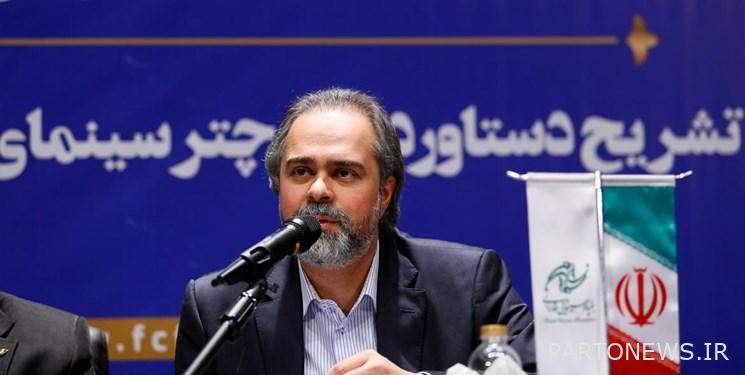What was the outcome of the Farabi Foundation in Cannes?

According to Fars News Agency’s cinema correspondent, different countries officially participate in the Cannes Film Festival’s film market – which has passed its 75th year this year – and buy and sell films, finance projects and cinema meetings. The Farabi Cinema Foundation is also the official representative of Iranian cinema at the Cannes Film Festival and international film conferences, and this year the foundation’s international deputy represented Iran at the event.
Raed Faridzadeh, International Vice President of the Farabi Cinema Foundation, yesterday at a press conference described the achievements of the Iranian cinema umbrella in Cannes 2022. Achievements whose details are not provided in detail and are limited to meeting a few cultural and cinematic figures.
He also said about the movie “Holy Spider”: “I did not see the movie” Holy Spider “for various reasons. The Cannes Film Festival ticketing site was hacked, leaving a limited number of guests and reporters able to see the films. On the other hand, for various reasons, I could not see this film, which was partly due to our busy schedule in the Iranian cinema umbrella, and partly due to my personal lack of interest in seeing this film. “But with the opinions that Westerners have given about this film, it can be talked about and judged.” In other words, the only official in charge of Iranian cinema in Cannes has not seen a film that was anti-Iranian and anti-Shiite for personal reasons. Meanwhile, Iran has spent 33,000 Euros (about one billion Tomans) to attend Cannes, which, according to Farabi officials, has cost about 27,000 Euros to rent an Iranian booth in the Cannes Film Market.
Of course, Faridzadeh’s remarks were so strange that an hour later, the official website of the Farabi Cinema Foundation edited and deleted part of his speech about the hacking of the festival website. Really, why hasn’t a person who has attended the Cannes Film Festival at an impersonal cost and based on his mission seen a film that needed to take an official position in Iran based on personal taste?
The public relations of the Farabi Cinema Foundation wrote in the explanation of this article: Mr. Faridzadeh and his colleague were sent for the umbrella of Iranian cinema, their duty was to be present in the market, not the screens. This year, no one from Farabi went to see the films. Even if he was a representative, his presence in the screening of this film was wrong and out of protocol due to its anti-Iranian content.
Although the Deputy Minister of Cinema has shown a revolutionary and committed approach in recent months and has been able to make a positive impact on the situation with his harsh statements against the film of the Holy Spider, the Minister of Culture and Islamic Guidance has also expressed his revolutionary and religious positions in several interviews. He tweeted, but the Ministry of Guidance’s cinema organization should be asked, if this is true, why does it send its representative to international film festivals?
* Who is the International Vice President of Farabi Cinema Foundation?
“Raed Faridzadeh” was born in 1978 in Mashhad. Faridzadeh’s father is the creator and designer of the “International Center for the Dialogue of Civilizations” of the reform government. Raed Faridzadeh attended primary school in Vienna, Austria, and high school in Germany, where he received a doctorate in literature and philosophy from the University of Berlin. He is the nephew of Mehdi Faridzadeh, the Deputy Minister of Cinema of the Ministry of Guidance in 1372-74. Raed Faridzadeh replaced Amir Esfandiari as the Deputy Minister of International Affairs of the Farabi Cinema Foundation in the government of moderation in 1397.
The question is, after about a year since the presence of the revolutionary government at the helm and the presence of Mohammad Khazaei, who has so far shown that it was the right choice, why do reformist figures still hold managerial positions? Why should a person who did not grow up in Iran and has an unrelated film education be at the helm of the most important international section of Iranian cinema?
End of message /
You can edit this post
Suggest this for the front page

